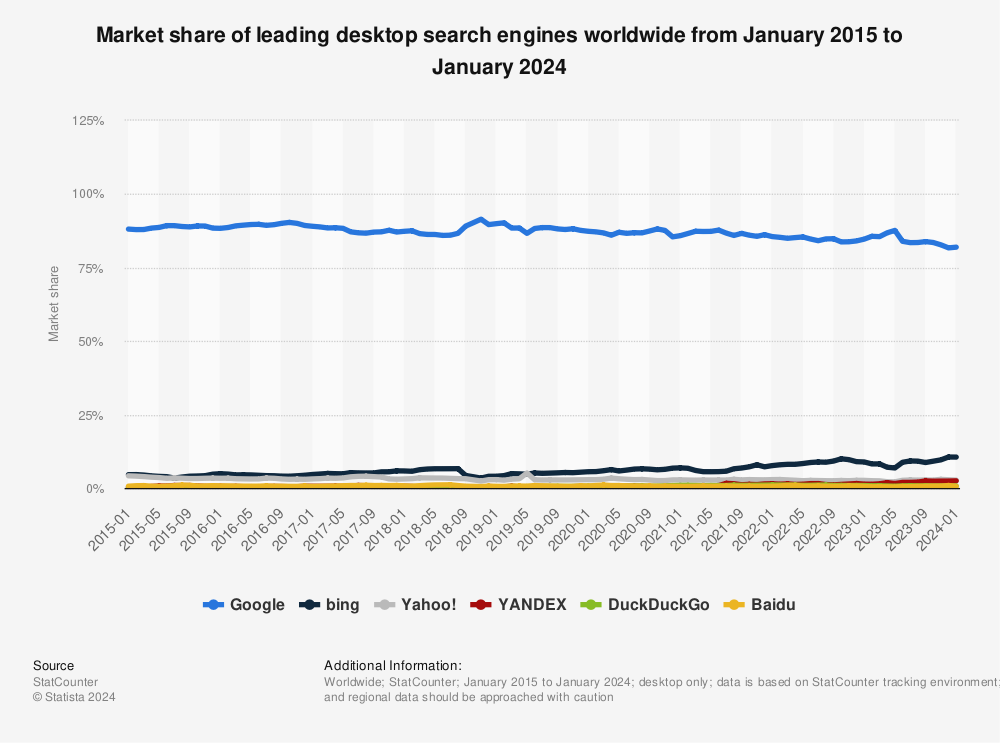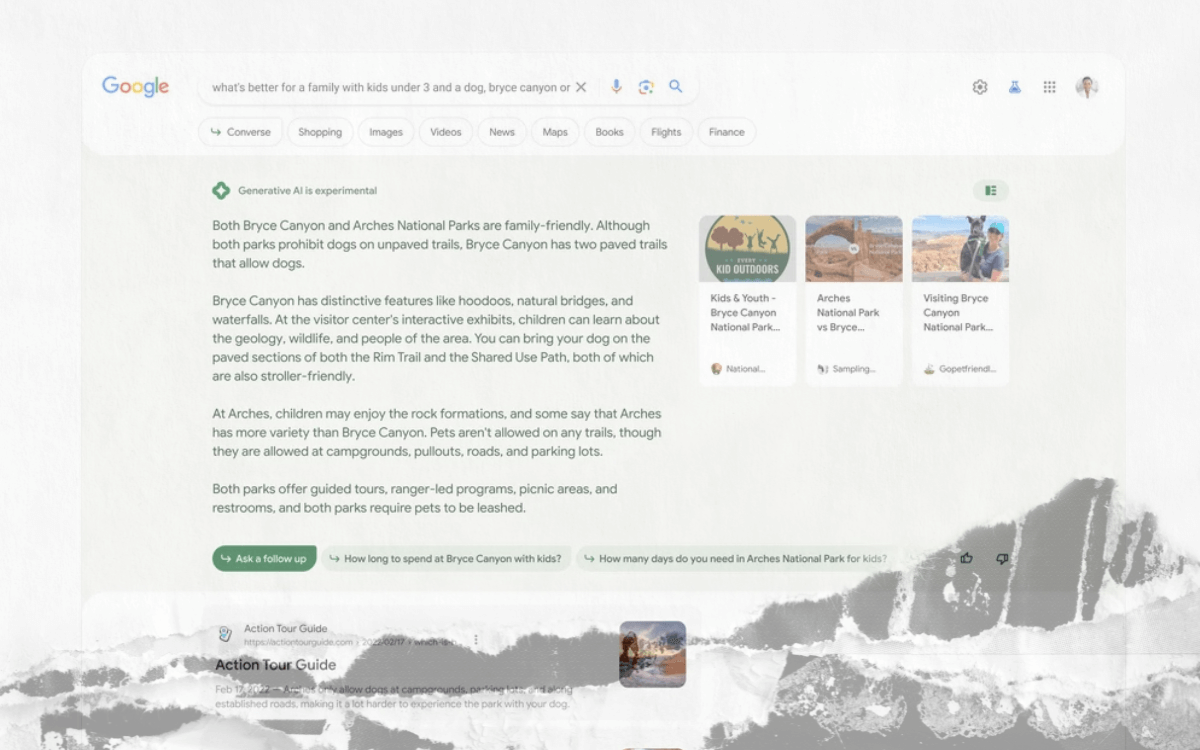The integration of Google’s Search Generative Experience (SGE) and AI Overviews (AIO) into search engines has sparked a heated debate regarding its long-term viability and impact on the search ecosystem. It has also left many marketers deeply concerned about its potential to disrupt the industry. At Avenue Z, we sought to explore the potential consequences of AIO for Google, businesses, and users.
Google’s Business Model and the Impact of Search Generative Experience (SGE)
Historically, Google has dominated the search engine market, with most of its revenue coming from search ads. In 2023 alone, Google reported earnings exceeding $305 billion from search ads. The introduction of AIOs, however, may pose a challenge to this model. By reducing the visibility of ads, AIOs could significantly disrupt the revenue streams for both Google and businesses that rely on Google Ads. This shift could have severe revenue-shifting implications for Google but also affects user engagement and satisfaction, which are crucial for sustained platform use.
User Perception and Market Reaction
The general public reaction to Google’s AIOs, seen on platforms such as TikTok and Reddit, shows that there is a general disapproval of the update. This aversion is mostly based on a preference for traditional search results and a general distrust of AI-generated content. Additionally, younger audiences are beginning to outright turn away from Google and prefer competitors focusing on privacy and environmental impact; like Ecosia and DuckDuckGo.
Comparative Analysis: Google vs. Bing
Unlike Google, Bing has implemented its AI search features with a chat-centric approach, which caters to its smaller user base accustomed to frequent changes in functionality and appearance. Despite Bing’s modest gains in market share following the implementation of AI features, its impact remains minimal compared to Google’s extensive user base and revenue.

Find more statistics at Statista
Subscribe to our Newsletter
Get exclusive strategies and insider insights to boost your influence.
SEO and PPC Strategies in the Age of SGE
From an SEO perspective, AIOs present both challenges and opportunities. The shift towards targeting long-tail and commercially focused keywords may enhance the quality of traffic to managed sites, aligning with the “position zero” in search results. For PPC strategists, adapting to the inclusion of Performance Max campaigns in AIO results is essential, although potentially costly. If businesses want to continue to be seen and get clicks, it may require forking out some extra cash with less reward, which could spell trouble for not only these businesses being bled dry, but also Google getting less ad revenue from these clicks.
Technological Adoption and Historical Precedents
Reflecting on past hurdles for technological adoptions, such as the initial skepticism towards smartphones, can help provide context for evaluating SGE’s potential. While some innovations like electric cars and VR headsets haven’t met the lofty expectations set for them, they continue to evolve and find their niches. Google’s history of frequent introductions and discontinuations of services—ranging from Google+ to Google Glass—suggests a pattern that might predict the future of SGE. Whether it becomes a mainstay or another transient experiment has yet to be determined.
In Conclusion
The introduction of AI into search engines marks a pivotal moment in the evolution of how we search and find information online. While the search AI holds the potential for simplified search results, the economic, social, and practical implications still need to be outlined to ensure it’s a win-win for Google and its users. The coming years will be crucial in determining whether SGE can integrate seamlessly into the daily habits of users or if it will join the list of discontinued innovations in Google’s portfolio.
Talk to our experts if you have questions on how to adapt your strategy to these changes.






